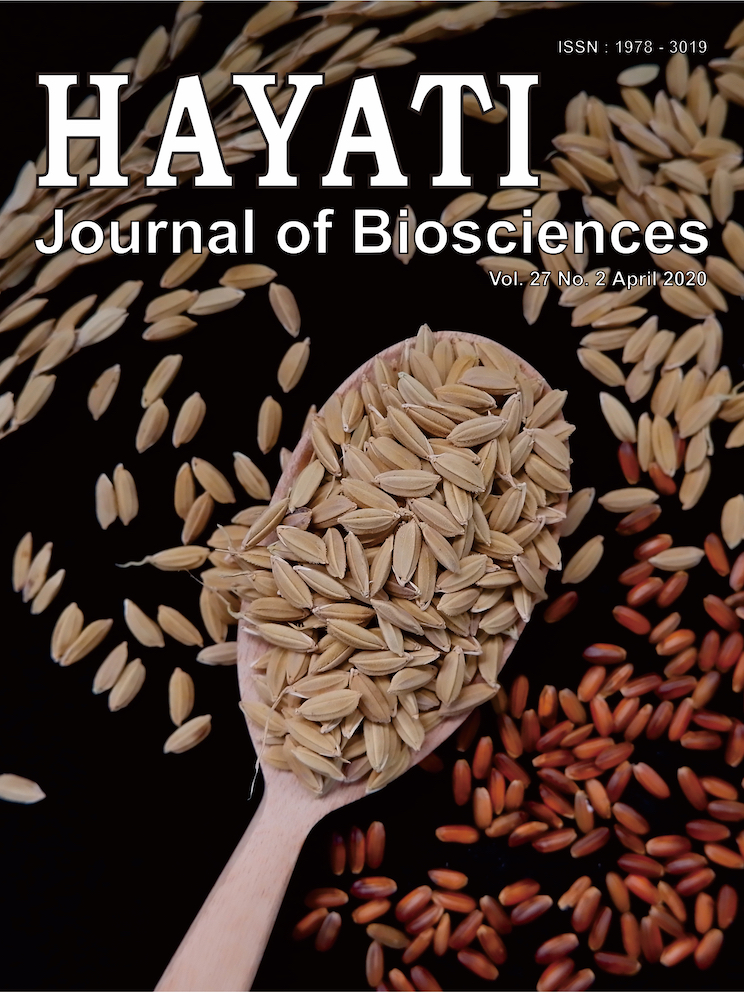Peptides Hydrolysate Derived from Collagen of Snakehead Murrel (Channa striata) Skin Demonstrate Anti-cholesterol and Anti-oxidant activities
Abstract
Anti-cholesterol and anti-oxidant play a crucial role to combat cardiovascular disease (CVD), due to formation of arterial plagues from oxidation of cholesterol. In the past decades, bioactive peptides demonstrating anti-cholesterol and anti-oxidant activities have emerged as the alternative drugs. In this study, acid soluble collagen was extracted from the skin of snakehead murrel and employed to induce secretion of collagenase by Bacillus licheniformis F11.4. The collagenases secreted were in turn used to produce peptides hydrolysate and were grouped in two distinct collagenase fractions, designated as fraction D and F. Peptides hydrolysate produced by the fraction D was found to demonstrate HMG-CoA inhibitor activity comparable to pravastatin and limited anti-oxidant activity. Meanwhile, peptides hydrolysate generated using the fraction F demonstrated anti-oxidant activity comparable to BHT (2mM), vitamin C (2mM), and vitamin E (2mM), but limited HMG-CoA activity. Combination of the fraction D and F resulted in substantial HMG-CoA inhibition and anti-oxidant activities.
Downloads
HAYATI J Biosci is an open access journal and the article's license is CC-BY-NC. This license lets others distribute, remix, tweak, and build upon author's work, as long as they credit the original creation. Authors retain copyright and grant the journal/publisher non exclusive publishing rights with the work simultaneously licensed under a https://creativecommons.org/

























.png) IPB University
IPB University Department of Biology
Department of Biology The Indonesian Biological Society
The Indonesian Biological Society 

